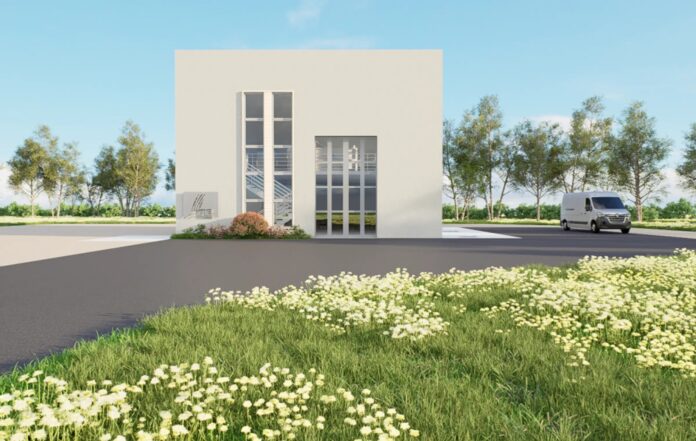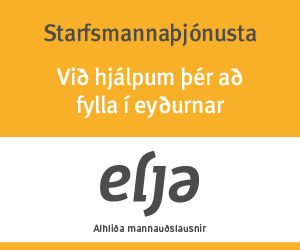Construction of a new wastewater treatment plant near Lagarfljót in East Iceland is expected to cost between ISK 400 and 500 million — but the price could rise by an additional ISK 1 billion if stricter purification requirements must be met.
The tendering process has begun for a new sewage treatment facility at Melshorn near Lagarfljót, but construction has been delayed due to uncertainty over required purification standards. If local authorities are forced to implement a two-stage treatment process in accordance with evolving EU environmental rules, total costs could surge to ISK 1.5 billion.
Previous system partly more effective — but incomplete
The need for a new plant has long been debated in Egilsstaðir and Fellabær. The previous system was designed with high ambition — a three-step process that could purify wastewater to nearly drinking-water quality before release into Eyvindará river. However, it was never completed: rainwater frequently overwhelmed the system, causing untreated sewage to overflow past the filtration stages.
The new facility will be larger and better equipped to handle all wastewater, though it will initially lack full purification capacity. HEF Veitur, the regional utility company, has issued a call for tenders to construct the station and septic tanks, with the filtration equipment (belt filters on the upper floor) to be tendered this summer.
EU classification drives higher standards
Despite being a glacial river, Lagarfljót is classified as a “sensitive recipient” under environmental guidelines — a designation that has triggered these new requirements. HEF Veitur had pushed for a reclassification to exempt the river from stricter treatment demands, arguing that the strong flow and glacial sediment should be considered. However, they were unsuccessful.
With new EU regulations looming, two-stage purification could soon become the minimum standard — even for outflows into the sea. Without exemptions, municipalities could face steep infrastructure upgrades.
To accommodate this, the plant is being designed with expansion in mind. The belt filters will be installed on an elevated platform, allowing wastewater to flow by gravity into a second treatment stage if necessary in the future.
Financial impact
Phase one of the project is estimated to cost between ISK 400–500 million. Should authorities be required to implement the additional purification stage, total costs could rise by another ISK 1 billion.
The project underscores the growing financial pressure on Icelandic municipalities to comply with increased environmental standards, particularly as Iceland aligns more closely with European regulations.
Source: Ruv.is




